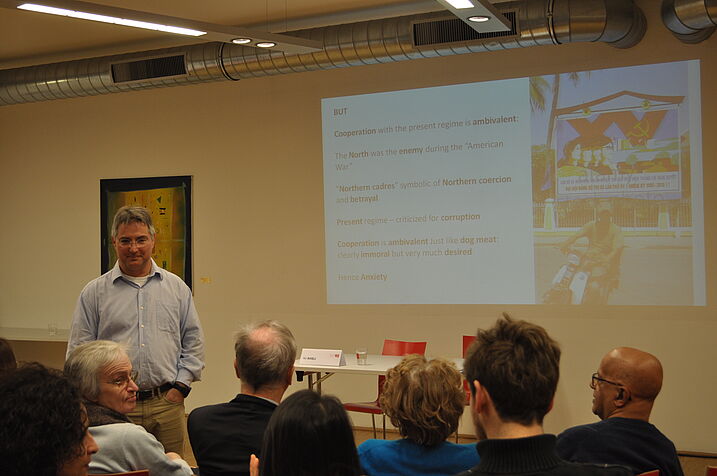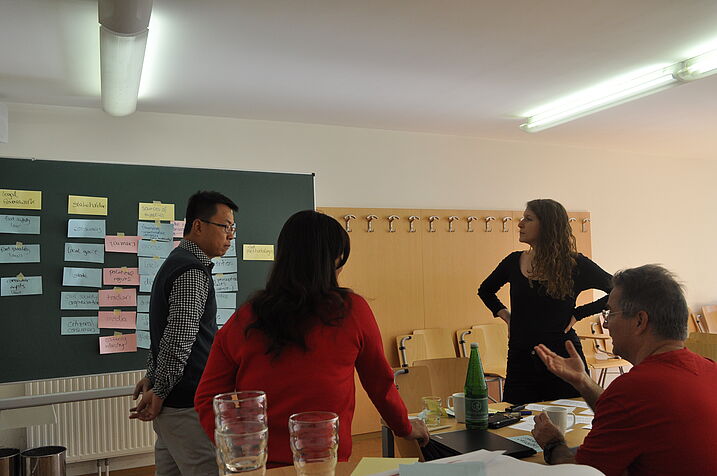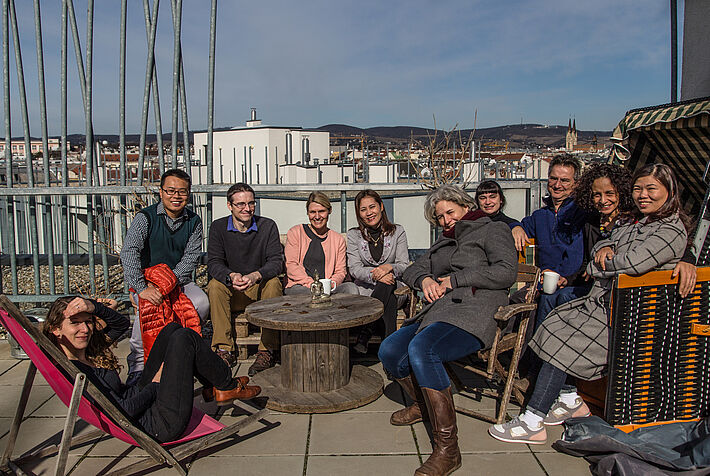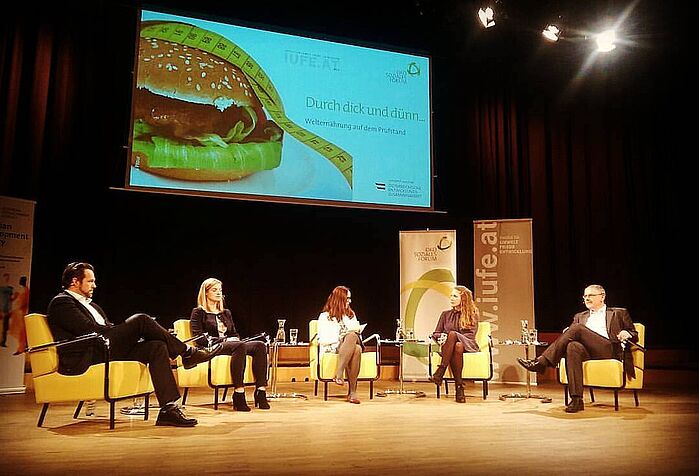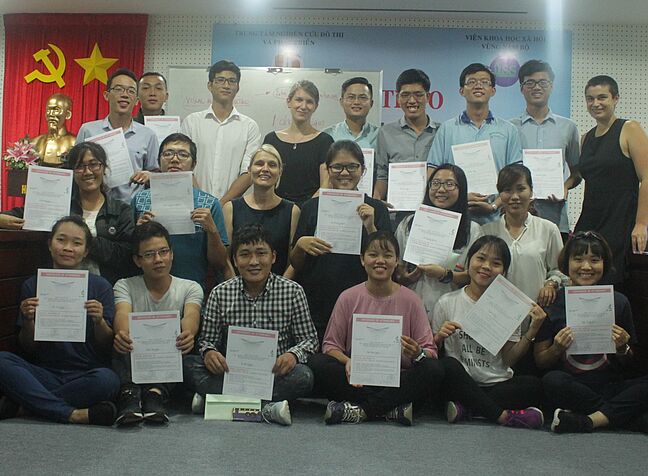Basics
Project leader: Dr. Judith Ehlert
Project Staff: Mag.a Nora Faltmann (doctoral student) and Carina Maier (research assistant)
Funded by the Austrian Science Fund (FWF)
Project duration: January 2015 to December 2019
About the project
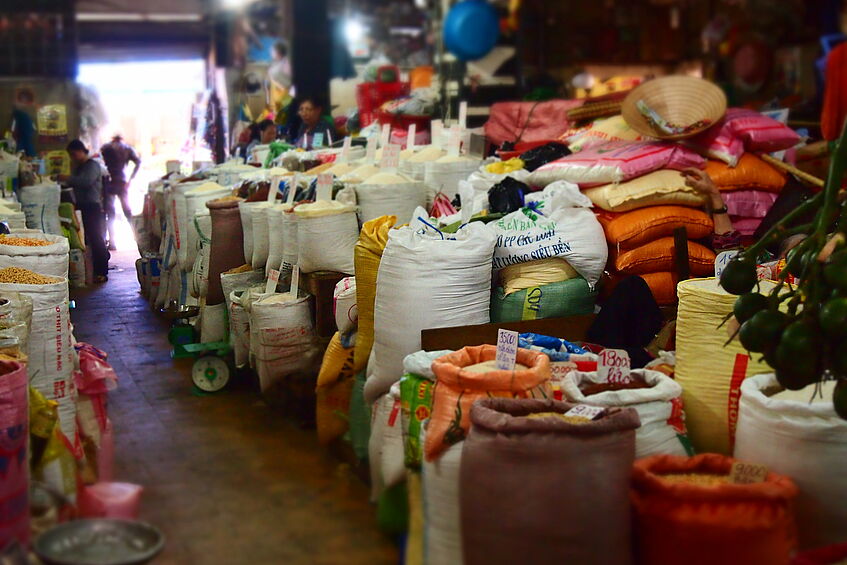
About the project
Food crosses physical and symbolic boundaries and is able to connect the present with the past, the individual with the society, and the domestic household with the world economy (Belasco 2007: 5). The act of incorporation establishes these connections – between the body, the self and the world. In the context of food abundance as well as the modernization of the agricultural and food systems of global consumer societies, the act of incorporation becomes more complicated. Eating patterns are changing while culinary options multiply. Food scandals, consumer ethics, nutrition and lifestyle guidelines, the counting of calories, and obesity as an alleged disease of affluence indicate the growing food complexity that is underpinned by conflicting discourses and policies in respect to food indulgence and frugality.
It is within this context that eating as an everyday practice becomes essential for social status positioning, while at the same time turning the act eating into both an object of social anxieties and ambivalences. Knowledge and discourses on food and the body, the structures of the food system, social norms of eating and food taboos, as well as social inequality in terms of food choice and access are inscribed into the body. Meanwhile – from the actor’s perspective – eating constitutes a meaningful experience of embodiment, agency, and lifeworld encounters. The proposed body-political approach to food takes this conflictive dynamic between individual and society, and the body and the self as a lens in order to understand how consumers and citizens meaningfully maneuver in this context of growing complexities around food, and make sense of everyday food consumption.
After the country’s wartime experience of extreme food insecurity and famine, Vietnamese society is confronted with an increasing diversity of (foreign) foodstuffs since the economic upsurge beginning in the mid-1980s. Shaped by the ideology of the communist one-party state as well as capitalist and neoliberal developments, the society finds itself in an ongoing process of negotiating and adapting to newly emerging spaces for social belonging and demarcation in which eating and food consumption play a central part. Food, again, turns into a lens through which broader societal changes in globalizing Vietnam are made visible. The project focusses on certain empirical phenomena in which body and health norms, gender roles, social status and inequality materialize and become symbolized by how and what people eat or refrain from.
Thematic cluster: Food safety and Social inequality One focus of the project is food safety, with the lack thereof currently being widely discussed and posing a central challenge for food provision and consumption in present-day Vietnam. The PhD candidate Nora Faltmann is tackling the topic from the point of view of the urban consumer. Central to this research are the different perceptions of food safety issues as well as the several strategies with which consumers are trying to consume “safe” food. Lack of food safety as well as coping strategies are put into relation with contemporary challenges of a society experiencing increasing social inequality. The varying degree of access to safe food also manifests itself in the form of inequality of health, a crucial component and link to the overall project’s body political approach.
Thematic cluster: Beauty, Food Regulation and Gender Against the background of the growing body and beauty industry, the omnipresent discourse on obesity, as well an increasing demand for body forming products and practices, project leader Judith Ehlert conducts research on the interplay of socially defined body ideals and the regulation and control of eating patterns and social appetites. The research focusses, among other aspects, on the development of dieting models, the ‘overfeeding’ of small children, and the social embeddedness of emerging food prohibitions and eating disorders.
Intensive field research in Vietnam constitutes an integral part of the project. Along with a Grounded Theory design, the empirical approach combines several qualitative social science methods and focusses on social arenas in which state policies, scientific knowledge, and global and local discourses and norms on beauty, health and nutrition intersect. These social arenas can be as diverse as the media, families, supermarkets, gastronomy, organic shops, food markets, shopping malls and fitness studios. In these everyday settings, actors have come to terms or negotiate with respective material objects, norms and discourses on food through the mundane act of eating itself. With the help of theoretical sampling the research takes into account the perspectives of diverse actors while the underlying research questions are continuously developed and grounded in the empirical phenomena under study.
News
2018 Book "Food Anxiety in Globalising Vietnam" (Palgrave Macmillan).
08/2017 Visual Working Methods in Qualitative Social Science Research
Research workshop in cooperation with SISS (Southern Institute of Social Sciences), HCMC, Vietnam.
09.10.2017 "Durch dick und dünn – Welternährung auf dem Prüfstand“
Mag.a Nora Faltmann discussing on a panel.
12.07.2017 Selbstinszenierung mit jedem Biss
uni:view magazine interview with Dr.in Judith Ehlert.
02.03.2017 Eat | Drink | Man | Woman. Gastropolitics in postsocialist Vietnam
Public Lecture with Dr. Nir Avieli.
03/2017 "Food Anxiety in South-East Asia & Beyond". International workshop.
12/2016 Emerging Consumerism and Eating Out in Ho Chi Minh City, Vietnam: The Social Embeddedness of Food Sharing
Open Access Book Chapter
06/2016 "Vietnam ist, was es isst, und verändert sich gerade"
Newspaper article: http://diepresse.com/home/science/5002818/Vietnam-ist-was-es-isst-und-veraendert-sich-gerade
11/2015 "Am Esstisch rückt die Welt zusammen"
Newspaper article: http://derstandard.at/2000025019216/Am-Esstisch-rueckt-die-Welt-zusammen

